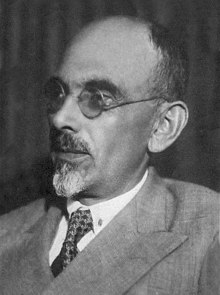
Back Џьавахишьвили, Михаил Саба-иԥа Abkhazian ميخيل چاڤاخيشڤيلى ARZ Mixeil Cavaxişvili Azerbaijani Міхаіл Джавахішвілі Byelorussian Михаил Джавахишвили Bulgarian Mikhaïl Djavakhixvili Catalan Micheil Džavachišvili Czech Mikheil Javakhishvili Danish Micheil Dschawachischwili German Mijail Dzhavajishvili Spanish
Mikheil Javakhishvili | |
|---|---|
 | |
| Native name | მიხეილ ჯავახიშვილი |
| Born | 20 November 1880 Tserakvi, Tiflis Governorate, Russian Empire |
| Died | 30 September 1937 (aged 56) Tbilisi, Georgian SSR, Soviet Union |
| Occupation | Writer, novelist |
| Language | Georgian |
| Nationality | Georgian |
| Genre | Critical realism |
| Notable works |
|
| Notable awards | |
| Signature | |
 | |
Mikheil Javakhishvili (Georgian: მიხეილ ჯავახიშვილი; birth surname: Adamashvili ადამაშვილი) (20 November 1880 – 30 September 1937) was a Georgian and Soviet novelist who is regarded as one of the top twentieth-century Georgian writers. His first story appeared in 1903, but then the writer lapsed into a long pause before returning to writing in the early 1920s. His recalcitrance to the Soviet ideological pressure cost him life: he was executed during the Great Purge and his writings were banned for nearly twenty years. In the words of the modern British scholar of Russian and Georgian literature, Donald Rayfield, "his vivid story-telling, straight in medias res, his buoyant humour, subtle irony, and moral courage merit comparison with those of Stendhal, Guy de Maupassant, and Émile Zola. In modern Georgian prose only Konstantine Gamsakhurdia could aspire to the same international level."[1]
- ^ Rayfield, Donald (2000), The Literature of Georgia: A History: 2nd edition, p. 224. Routledge, ISBN 978-0-7007-1163-5.